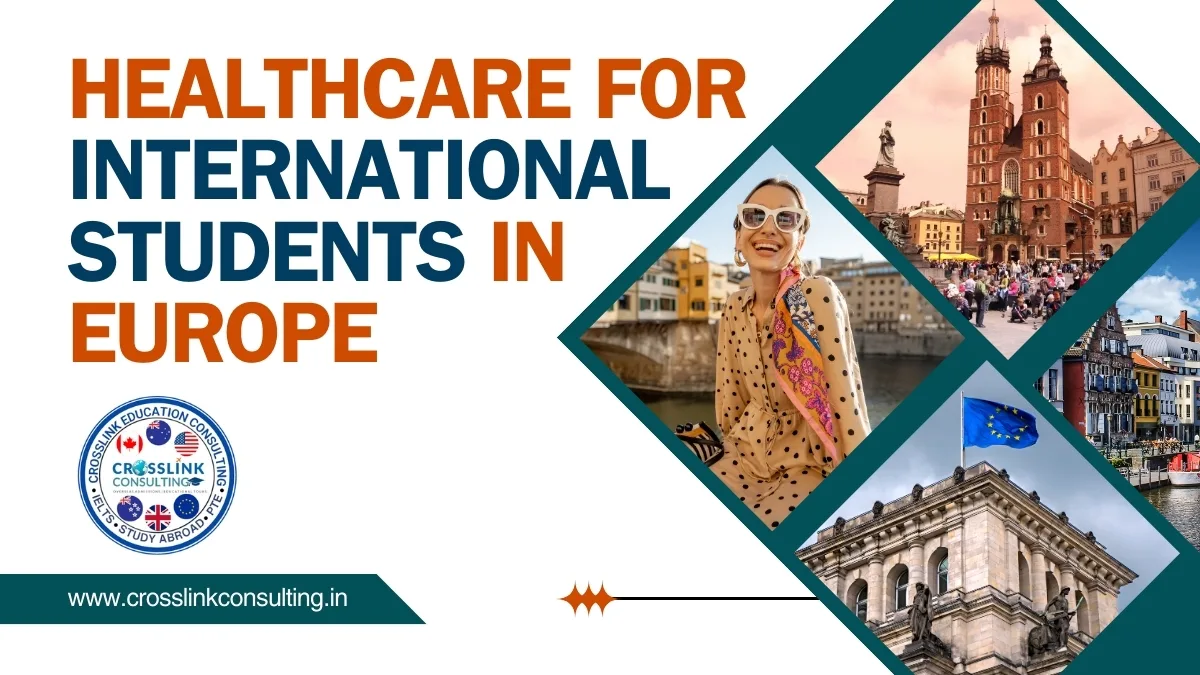Studying abroad in Europe is an exciting venture, offering a blend of rich academic experiences and cultural immersion. However, navigating the healthcare system as an international student can seem daunting. Understanding healthcare provisions, insurance requirements, and available services is crucial for a smooth and safe study experience. This blog aims to demystify healthcare for international students in Europe, ensuring you’re well-prepared for your academic journey.
Understanding the European Healthcare System
European health care systems are renowned for their high standards of care, but they vary significantly from country to country. Most European countries offer a mix of public and private healthcare services. Public health care is often funded through taxation and social security contributions, providing residents (including students) with access to a wide range of healthcare services at reduced costs or free of charge.
Health Insurance: A Pre-requisite for Studying in Europe
For international students, having health insurance is typically a prerequisite for obtaining a student visa and is crucial for accessing healthcare services in Europe. Some countries require students to register with the national health insurance system, while others may allow private health insurance policies that meet specific coverage criteria.
European Health Insurance Card (EHIC) and its Successor
EU citizens studying in another EU country can use the European Health Insurance Card (EHIC) to access healthcare services. The EHIC covers treatment that is medically necessary during your stay and allows you to be treated on the same basis as a resident of the country you’re in. However, with the introduction of the UK’s withdrawal from the EU and changes in health care agreements, it’s important to check the latest regulations and consider additional health insurance if necessary.
Private Health Insurance for Non-EU Students
Non-EU students will often need to arrange private health insurance to meet visa requirements. When selecting a private health insurance plan, ensure it is accepted by your host country and covers a comprehensive range of medical services, including emergency treatments and possible repatriation.
Navigating Healthcare Services
Once insured, familiarize yourself with the process of accessing health care services in your host country. This includes understanding how to make doctor’s appointments, the role of pharmacies, and what to do in an emergency. Many European universities offer health and counselling services on campus or can provide recommendations for local English-speaking health care providers.
Mental Health Support
Studying abroad can be challenging, and it’s important to take care of your mental health. Check what mental health services and support networks are available through your university and within the local community. Some health insurance plans include coverage for mental health services, so be sure to review your policy details.
Practical Tips for Managing Healthcare Abroad
Register with a local doctor or health centre upon arrival if required or advised.
Keep important health documents easily accessible, including your insurance policy, vaccination records, and any prescriptions.
Understand prescription medication norms in your host country, as some medications may have different names or require a local prescription.
Learn basic health care terminology in the local language, especially if you’re in a non-English speaking country.
While the prospect of navigating a new healthcare system might seem overwhelming, preparation and understanding are key to ensuring your health and well-being while studying in Europe. Take advantage of the resources available through your university and expatriate communities, and ensure you have adequate health insurance coverage. By doing so, you can focus on what really matters: making the most of your international study experience.


Leave a Reply